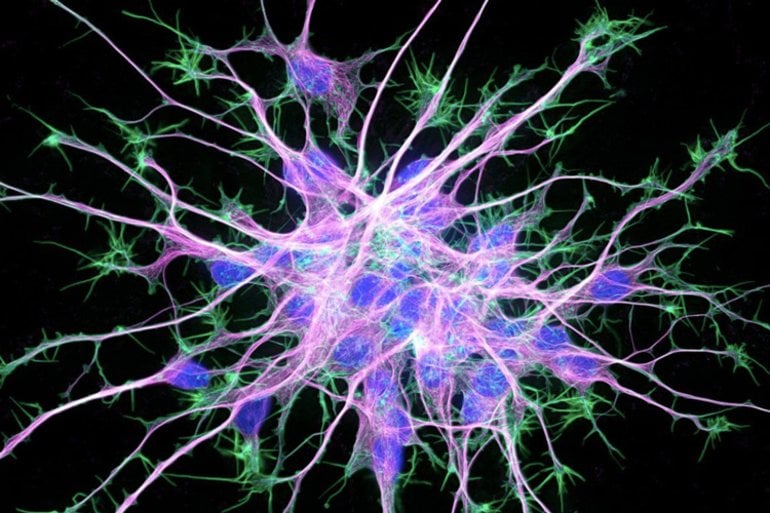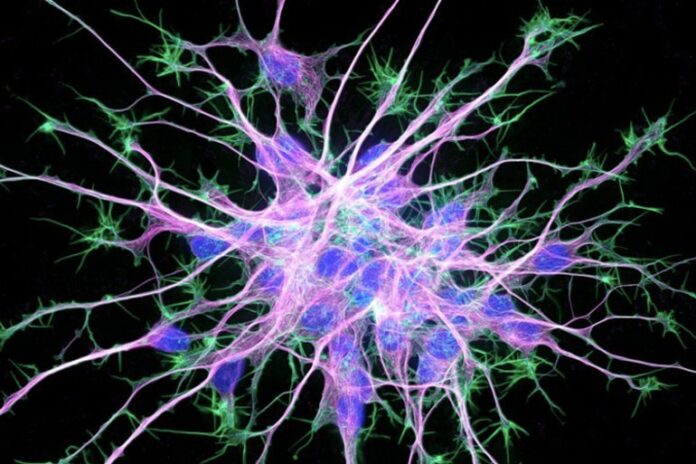[ad_1]
Summary: Weill Neurohub announces a long-term research partnership with Genentech and Roche Holding AG to advance the development of new therapeutics for debilitating brain and central nervous system diseases.
Source: UC Berkeley
The University of California, San Francisco (UCSF) and UC Berkeley today announced a long-term research partnership with Genentech, a member of the Roche Group, and its parent company, Roche Holding AG, to speed the development of new therapeutics for debilitating brain diseases and disorders of the central nervous system (CNS), such as Alzheimer’s, Parkinson’s, Huntington’s, ALS and autism. UCSF and UC Berkeley will receive up to $53 million from Genentech over the course of the 10-year collaboration.
The partnership, dubbed the Alliance for Therapies in Neuroscience (ATN), is a major milestone for the Weill Neurohub, a joint research collaboration between UCSF, UC Berkeley and the University of Washington.
The Weill Neurohub was launched in 2019 with gifts from the Weill Family Foundation to focus researchers from many different disciplines on one of society’s most pressing health problems — disorders of the brain and nervous system, which afflict over 1 billion people and represent the leading cause of disability worldwide. Just one year later, the Genentech and Roche partnership provides a powerful mechanism for putting those collaborations into action with a focus on developing long-needed therapies for these disorders.
“This represents a perfect opportunity to align the scientific expertise of our great public institutions with innovation that thrives at Genentech and Roche. It also builds upon long-standing relationships with Genentech that help strengthen the collaboration across academia and industry,” said Dr. Stephen Hauser, M.D., the Robert A. Fishman Distinguished Professor of Neurology at UCSF and director of the UCSF Weill Institute for Neurosciences, a Weill Neurohub partner. Hauser will co-chair the joint steering committee for the ATN.
“At Genentech and Roche, we are strongly committed to discovering and developing breakthrough medicines to help improve the lives of people living with neurological disorders, which are some of the most complex conditions to understand and treat,” said James Sabry, M.D., Ph.D., global head of pharma partnering at Roche.
“We are excited to join forces with Weill Neurohub researchers and clinicians to accelerate scientific and clinical advancements for neurological disorders so that we can slow, or even one day reverse, the progression of these conditions.”
The initial areas of focus for the collaboration are neurodegeneration, CRISPR-based therapeutics, protein degradation, functional genomics in human brain cells, and sleep mechanisms and circuits. A key university collaborator is the Innovative Genomics Institute, a joint research program between UC Berkeley and UCSF founded to leverage CRISPR-based genome engineering, a revolutionary technology invented at UC Berkeley.
By harnessing the expertise and resources between academia and industry, joint project teams will aspire to better understand disease pathologies, discover novel targets, generate new preclinical models, and develop novel translatable biomarkers that will further accelerate the development of potential innovative therapeutics for patients with CNS disorders.
The initial projects funded under the ATN focus on four key areas of need for neurological and psychiatric disorders: developing biomarkers to track disease progression and the effectiveness of future therapies; understanding molecular pathways of protein breakdown that drive disease; parsing genetic and protein profiles linked to CNS disorders; and developing therapeutics for brain diseases based on CRISPR technologies.
“The significant financial commitment and the opportunity to collaborate with counterparts from Genentech and Roche are powerful catalysts to bring in top individual researchers from outside and inside neuroscience and kick-start neurodegenerative disease research at two powerhouse universities that can create a new generation of clinical treatments,” said Ehud Isacoff, Ph.D., the Evan Rauch Chair in Neuroscience at UC Berkeley and head of UC Berkeley’s Helen Wills Neuroscience Institute, a Weill Neurohub partner.
“Our original vision was that the Weill Neurohub would partner with biotech and pharma companies to drive neuroscience research forward. We are thrilled that Genentech and Roche have agreed to be the first to join us in this unique collaboration, not just through direct funding, but also by dedicating scientific resources and expertise from within their own company on the work that we are doing together,” said philanthropist Sanford I. “Sandy” Weill, chair of the Weill Family Foundation.

“We thank Genentech and Roche for their commitment to not only prolonging life, but enhancing the quality of life for millions,” said Weill Family Foundation President Joan Weill.
Hauser noted that neuroscientists are making tremendous breakthroughs in understanding brain disease at a deep level, in large part by applying 21st century disease models based directly on human cells and their genes.
“Now, we have the opportunity to pair those growing insights with the spectacular disease biology expertise, translation and drug development skills of Genentech and Roche to create revolutionary progress toward the therapies that CNS diseases have so long lacked,” he said. “This partnership is not about picking off the low-hanging fruit — it’s about transforming the treatment of neurological and psychiatric disease, which will require long-term investment and the flexibility to go where the science guides us.”
While all these diseases of the brain or CNS are incredibly challenging, Isacoff said, “it is really hard to imagine that significant progress will not be made in each of these areas, because the scientific expertise and passion across the teams are so strong. What I am hoping for is that some of these things lead to a breakthrough where, eventually, we are looking back a decade or two from now and saying, ‘Holy moly! That is when we turned the corner on neurological disease.’ That’s the dream.”
About this neuroscience business research news
Source: UC Berkeley
Contact: Robert Sanders – UC Berkeley
Image: The image is credited to UCSF
[ad_2]
Source link













